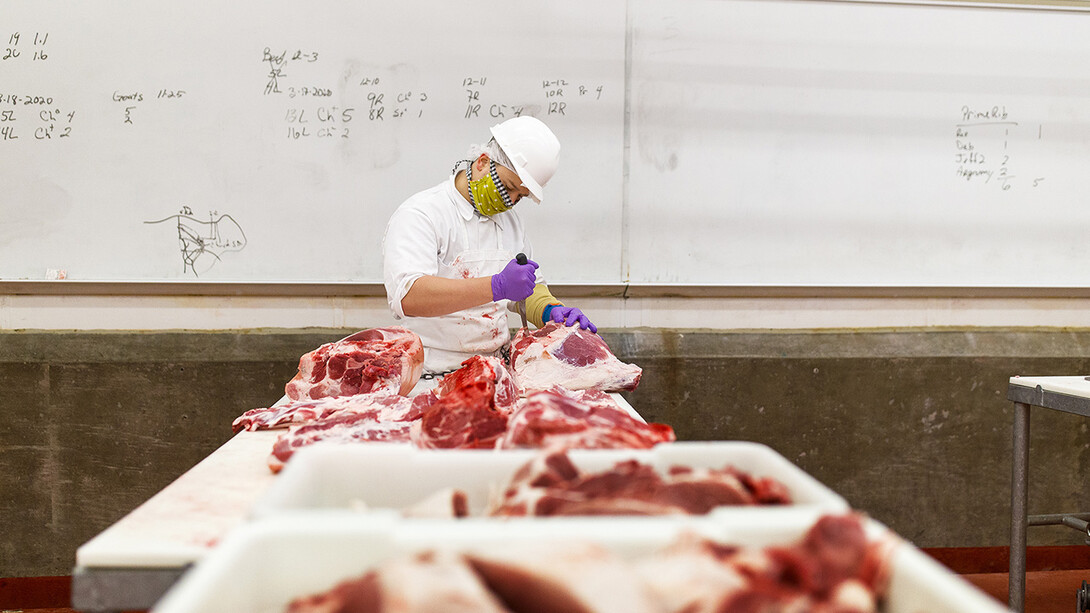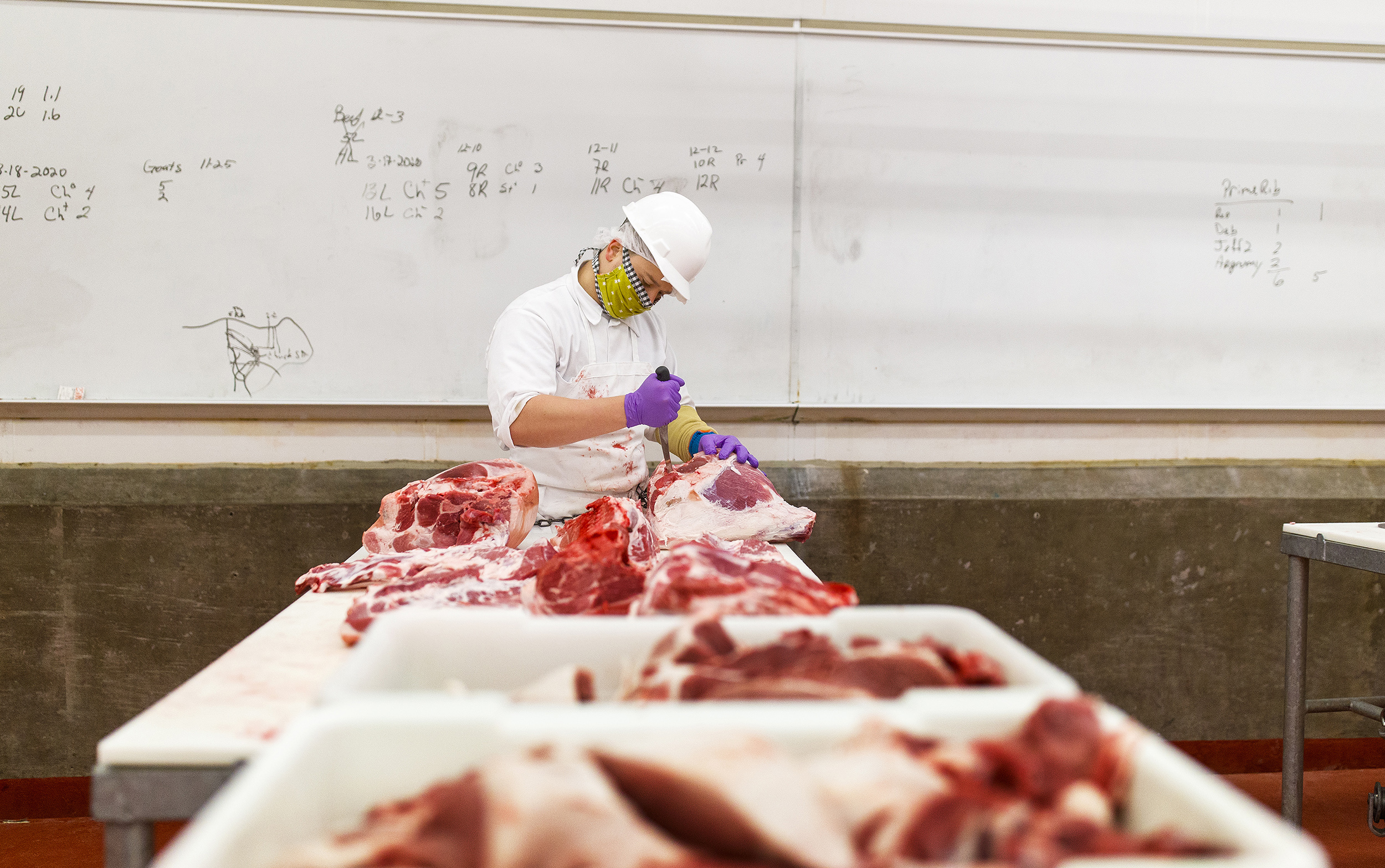
A broad mixture of factors affects the cattle industry — droughts, cattle cycles, grain prices and recently cyberattacks, just to mention a few, said University of Nebraska–Lincoln agricultural economist Azzeddine Azzam. The COVID-19 pandemic has added even more complexity, disrupting meat processing capacity and raising concerns about the industry’s resilience.
A $203,752 grant from the U.S. Department of Agriculture will fund a far-ranging study of the packing industry’s complex economics by Azzam, Roy and Judith Frederick Professor of Agricultural Economics. Azzam has extensive experience in analyzing the complicated set of interactions and relationships that make up the cattle sector economy.
Azzam’s research project, funded by the USDA’s National Institute of Food and Agriculture, will focus on two key goals. First, the study will examine industry conduct during the COVID-19 plant shutdowns. Second, Azzam will analyze the economic ramifications from expanding local meat processing through the creation of small packing operations.
“Market power is only one of several dimensions that affect the cattle industry,” said Azzam, founder and past director of the Center of Agricultural and Food Industrial Organization.
The task for economists, he said, is to examine the wide array of ag-sector factors and sort out the details to reach conclusions for economic understanding and guidance for public policy.
“The question for us economists is how to separate the wheat from the chaff,” said Azzam, who has collaborated on international research projects on agricultural and food economic issues in Morocco, Sweden and the United Arab Emirates.
“The issue of market power exerted by packers is nothing new,” he said. “It’s been around since the 1800s, and the industry has gone through cycles, and now we’re at the point where the industry is again highly concentrated. And so the question is: What’s the result of that concentration? Are producers worse off, or are they better off?”
Economists, Azzam said, have traditionally focused on the tradeoffs between two economic dimensions. The first dimension is meatpackers’ potential market power. The second dimension is economies of scale — efficiencies achieved by big packers by having larger plants. COVID-19 has added a third dimension: resilience.
The issue of resilience is tied to the initiative of creating more small packing plants.
“When we add more regional or local capacity to the industry, either through opening new plants or expanding the capacity of existing plants, that is going to restructure the industry,” Azzam said. “The questions that I will address are: Will the restructuring make the industry more resilient to capacity disruptions in the event of another pandemic? What are the short-term and long-term consequences for the cattle feeding industry?”
While separate initiatives, the research is timely. Nebraska animal science faculty recently announced plans to develop the Small Meat Processing Plant of the Future. The plant will leverage new and existing university resources to expand processing capacity and enhance the tools available to small and very small processors.
Such a step should be applauded, particularly if it enhances the cost-efficiency of small meat processing plants, thus allowing them a shot at competing for business with larger plants, Azzam said.
The responses to IANR’s announcement of the Small Plant of the Future have been overwhelmingly positive, said Clint Krehbiel, head of the Department of Animal Science. The initiative will use a variety of approaches to boost workforce development within an updated processing facility.
“This will include traditional classroom and hands-on training for students earning degrees at UNL, but will also expand meat science literacy for younger students through 4-H and FFA and student internships,” Krehbiel said.
In addition, the initiative will provide training in hazard analysis and critical control points systems that promote preventive steps for food safety. The project, Krehbiel said, will serve “as a resource for regulatory compliance and operating procedure refinement, training industry personnel to enhance final product value, providing technical support and supporting educational efforts of industry organizations.”
The overall goal, Krehbiel said, is to create a slaughter hub “as a prototype for other small and very small or custom-exempt slaughter facilities with a suite of resources available to those looking to set up or expand operations, including technical assistance and workforce development tools.” Over time, this approach “will have a multiplying effect in the region. With state-of-the-art facilities and faculty, the Small Plant of the Future will provide an immersive experience for both degree- and non-degree-seeking students to learn best practices across food safety, animal welfare, worker safety and sustainability.”
Assessing the tradeoffs among the market power, cost-efficiency and resilience ramifications likely to flow from a significant increase in the number and/or capacity of small packing plants is the aim of Azzam’s USDA-funded project. The models and methods used in making such an assessment come from the Agricultural and Food Industrial Organization program, one of the specialties in the Department of Agricultural Economics.








